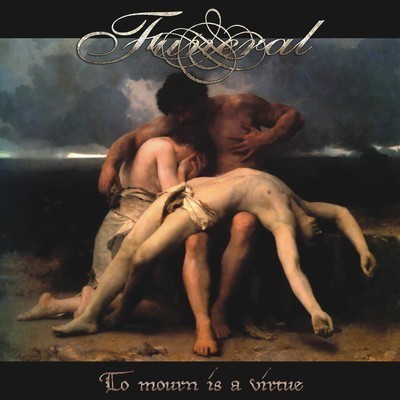- Просмотреть список опций
| КОД | Варианты альбома | Доступность | Цена | ||
|---|---|---|---|---|---|
|
|
SP. 048-11 x
|
Нет в наличии
|
700.00 ₽ | ||
|
|
SP. 048-11D xs
|
В наличии
|
1 000.00 ₽ |
Solitude Productions с гордостью представляет альбом легендарной норвежской группы, под названием «To Mourn Is A Virtue». Этот релиз – недостающее звено, между классическим альбомом группы «Tragedies» (1995 год) и «In Fields Of Pestilent Grief» (2002 год). Материал альбома был сформирован на основе нереализованной демо-записи 1997 года, и включает в себя ранее неизвестные слушателям девять треков, заново переработанных музыкантами в 2010 году, спустя почти 15 лет, после своей первой фиксации в студии. «To Mourn Is A Virtue» может стать неожиданным открытием для поклонников группы и для тех, кто интересуется жанром. Группа Funeral, одна из первых групп, начавших играть в стилистике funeral doom metal и перейдя позже к doom death metal, представляет на этот раз взыскательным слушателям эталонный классический doom metal.
Треклист:
1 Hunger 9:01
2 God? 7:02
3 Your Pain Is Mine 7:47
4 The Poison 5:25
5 Dancing In A Liquid Veil 9:26
6 How Death May Linger 9:21
7 Father 7:31
8 Blood From The Soil 8:04
9 Wrapped All In Woe 5:44
Артист:
Funeral
Страна артиста:
Norway
Год альбома:
2011
Название:
To Mourn Is A Virtue
Стиль:
cult doom metal
Формат:
Compact Disk
Тип:
CD
Упаковка:
Jewel Case
Лейбл:
Solitude Productions
Кат. номер:
SP. 048-11
Год издания:
2011
Страна-производитель:
Russia






















































